Advanced Greek Package
Vine’s Complete Expository Dictionary of Old and New Testament Words
DESCRIPTION
This classic word study resource allows you to study the meaning of biblical words in the original languages without spending years learning Greek or Hebrew.
A great resource for students, seasoned pastors, and anyone who enjoys biblical word studies–even if they have little to no formal training in Hebrew or Greek. Vine’s Complete Expository Dictionary:
- Contains over 6,000 key biblical words, describing word frequency, usage, and meaning as fully as possible.
- Serves as a dictionary, commentary, and comprehensive topical concordance all in one volume.
- Includes the widely used numbering system found in The New Strong’s Exhaustive Concordance of the Bible.
- Contains an introduction describing the history of the languages in which the Bible was written and other orientating data on how the modern Bible came about.
This classic reference tool has helped thousands dig deeper into the meaning of the biblical text and will enlighten Bible students to the riches of God’s truth in Scripture, opening up God’s word as it has never been opened before.
This is the most affordable complete edition of Vine’s famous Old and New Testament dictionaries available.
theWord Features:
- Verse popups
- Fully searchable text
- Easy navigation of topics via topics tree display.
- Special Text Colors
- Normal: Text
- Hyperlink: Glossary | Gen. 9:8
- Strong’s Numbers: G12
- Greek Transliteration: archon
- Greek: εὐδόκησα
- Hebrew Transliteration: ger
- Hebrew: א
New International Dictionary of Old Testament Theology and Exegesis
DESCRIPTION
Only one hermeneutical text published prior to the New International Dictionary of Old Testament Theology & Exegesis can be held up reasonably to its measure of quality and the exhaustive nature of the research that produced this immense work. That singular collection worthy of comparison is its counterpart, the New International Dictionary of New Testament Theology, edited by Colin Brown.
This 5 volume addition to that acclaimed work, though intimidating in the achievement it embodies, is intended for serious Old Testament and exegetical study by men and women of all walks of life — both academics and pastors, students and laypersons. Volume one contains a Guide to Old Testament Theology and Exegesis in which ten essays have been compiled to thoroughly explain proper hermeneutics and interpretation, as well as guidelines for using this source material.
Volumes one through four contain the Lexicon of the Old Testament, all words found in the text ordered by Hebrew alphabetization for easy reference, and coupled with a Goodrick / Kohlenberger cross-referencing number to be used in conjunction with Strong’s numbering system. The relationship of each word in different contexts and languages is also explained, including alternative words, and the particulars of their semantic domain. All this information is, of course, complete with bibliography. Volume four also begins the Topical Dictionary. Therein can be found articles on the theology of each Old Testament book individually, as well as discussion of biblical concepts, people, places, events, and literary pieces, all information that is cross-referenced to the preceding Hebraic Lexicon.
Finally, volume five contains a series of indexes: Hebrew Index, Scripture Index, Subject Index, and an index of Semantic Fields. Taken as a whole, the New International Dictionary of Old Testament Theology & Exegesis is an unparalleled accomplishment in the field of biblical hermeneutics.
theWord Features:
- Verse popups
- Fully searchable text
- Footnotes
- Easy navigation of topics via topics tree display.
- Special Text Colors
- Normal: Text
- Hyperlink: Glossary | Gen. 9:8
- Hebrew Transliteration: archon
- Hebrew: דבר
New International Dictionary of New Testament Theology and Exegesis Set
DESCRIPTION
A standard and widely-used reference work for nearly 40 years, the New International Dictionary of New Testament Theology and Exegesis has been thoroughly revised and updated to aid today’s pastors, students, scholars, and teachers in their study of the New Testament.
Offering a wealth of background and information on the meaning of Greek words in the New Testament—as well as related usage in classical Greek sources, the Septuagint, Jewish literature, and more—this important tool offers the following features:
• Alphabetical arrangement according to Greek words instead of previous order according to English topics; this ensures that individual Greek words are not discussed in isolation from one another and are easy to access
• Expanded to include additional Greek words and concepts not covered in the original work, NIDNTTE includes nearly 800 entries covering over 3,000 Greek words
• Discussions have been revised to be in line with modern scholarship and bibliographies are updated
• Corrections have been made to inconsistencies and omissions in earlier versions
• Updated and added consistency to include—for every entry—all necessary background information from classical Greek, the LXX, and Jewish literature.
• A helpful semantic domain index now directs the reader to all of the Greek words that have something to do with a particular English word. For example, under the English word “Anger, Wrath,” there is a list of thirteen Greek words that are related to that topic.
• Significant changes have been made in the presentation and discussion of linguistic details
• and much more!
theWord Features:
- Verse popups
- Fully searchable text
- Footnotes
- Easy navigation of topics via topics tree display.
- Special Text Colors
- Normal: Text
- Hyperlink: Glossary | Gen. 9:8
- Greek Transliteration: archon
- Greek: εὐδόκησα
New International Dictionary of New Testament Theology: Abridged Edition
DESCRIPTION
This abridgment of Colin Brown’s original four volume work is arranged with its entries in Greek alphabet order, which makes it easy to find the discussion of a particular word. All Greek words are transliterated into English and linked with their Goodrick/Kohlenberger numbers. This book was formerly titled The NIV Theological Dictionary of New Testament Words.
theWord Features:
- Verse popups
- Fully searchable text
- Footnotes
- Easy navigation of topics via topics tree display.
- Special Text Colors
- Normal: Text
- Hyperlink: Glossary | Gen. 9:8
- Greek Transliteration: archon
- Greek: εὐδόκησα
Package: NIV Application Commentary: New Testament
Description
The NIV Application Commentary helps you communicate and apply biblical text effectively in today’s context.
The New International Greek Testament Commentary: The Gospel of Luke
(These are resources that are being developed. There is no release date. Pricing is subject to change.)
The Gospel of Luke was written, says its author, as an historical account of the ministry of Jesus. Not only would it serve as the basis for a sound faith on the part of professing Christians, but it would also claim a place for Christianity in history. Christ’s ministry, as Luke shows, is realized prophecy; it is that time during which God’s promise of salvation was fulfilled. His teachings, healing, and acts of compassion are all part of the good news. In Luke’s Gospel, Christ’s message of salvation is directed to the weak, poor, and needy, with an emphasis on the importance of self-denial and of whole-hearted discipleship. Thus, while Luke is the most conscious historian of the Gospel writers, his history is a vehicle of theological interpretation in which the significance of Jesus is expressed.
In this commentary I. Howard Marshall calls attention to the theological message of Luke the Evangelist. His primary purpose is to exegete the text as it was written by Luke, so that the distinctiveness of Luke’s Gospel may be seen.
Basing his commentary on the third edition of The Greek New Testament, Dr. Marshall also refers to many variant readings which are significant in this study. He provides fairly full information on the meanings of the Greek words used by Luke and shows which words and constructions occur frequently and are therefore characteristic of his style. It is by this meticulous analysis of the Greek that Luke’s theological intentions can be objectively determined.
The New International Greek Testament Commentary: The Gospel of Matthew
(These are resources that are being developed. There is no release date. Pricing is subject to change.)
Having devoted the past ten years of his life to research for this major new work, John Nolland gives us a commentary on the Gospel of Matthew that engages with a notable range of Matthean scholarship and offers fresh interpretations of the dominant Gospel in the history of the church.
Without neglecting the Gospel’s sources or historical background, Nolland places his central focus on the content and method of Matthew’s story. His work explores Matthew’s narrative technique and the inner logic of the unfolding text, giving full weight to the Jewish character of the book and its differences from Mark’s presentation of parallel material. While finding it unlikely that the apostle Matthew himself composed the book, Nolland does argue that Matthew’s Gospel reflects the historical ministry of Jesus with considerable accuracy, and he brings to the table new evidence for an early date of composition.
Including accurate translations based on the latest Greek text, detailed verse-by-verse comments, thorough bibliographies for each section, and an array of insightful critical approaches, Nolland’s Gospel of Matthew will stimulate students, preachers, and scholars seeking to understand more fully Matthew’s presentation of the gospel narrative.
The New International Greek Testament Commentary: The Epistle to the Hebrews
(These are resources that are being developed. There is no release date. Pricing is subject to change.)
The New International Greek Testament Commentary: The Epistles to the Thessalonians
(These are resources that are being developed. There is no release date. Pricing is subject to change.)
The letters of Paul to the newly founded Christian community at Thessalonica hold a special place within the Christian tradition as possibly the earliest extant Christian writings. They are also of special interest not only for their theological value but for their sociological context. Among the communities established by Paul, the church at Thessalonica appears to have been the only one to have suffered serious external oppression. These two important epistles, then, speak uniquely to contemporary Christians living in a society often ideologically, if not politically, opposed to Christian faith.
In this innovative commentary Charles A. Wanamaker incorporates what may be called a social science approach to the study of 1 and 2 Thessalonians, taking into full account the social context that gave rise to Paul’s correspondence. While Wanamaker in no way ignores traditional historical-critical, linguistic, literary, and theological approaches to writing a commentary — in fact, at several points he makes a significant contribution to the questions raised by traditional exegesis — at the same time he goes beyond previous commentaries on the Thessalonian correspondence by taking seriously the social dimensions both of Christianity at Thessalonica and of the texts of 1 and 2 Thessalonians themselves. In blending traditional exegetical methods with this newer approach, Wanamaker seeks to understand Pauline Christianity at Thessalonica as a socio-religious movement in the first-century Greco-Roman world and attempts to grasp the social character and functions of Paul’s letters within this context.
The New International Greek Testament Commentary: The Book of Revelation
(These are resources that are being developed. There is no release date. Pricing is subject to change.)
The New International Greek Testament Commentary: The Epistle of James
(These are resources that are being developed. There is no release date. Pricing is subject to change.)
Peter David’s study on the Epistle of James is a contribution to The New International Greek Testament Commentary, a series based on the UBS Greek New Testament, which attempts to provide thorough exegesis of the text that is sensitive to theological themes as well as to the details of the historical, linguistic, and textual context.
The New International Greek Testament Commentary: The Gospel of Mark
(These are resources that are being developed. There is no release date. Pricing is subject to change.)
Drawing on many years of Marcan studies, world-class scholar R. T. France has produced an exegetical commentary on the Greek text of Mark that does what the best of recent Greek commentaries have done but in France’s own inimitable, reader-friendly way.
This work is a commentary on Mark itself, not a commentary on commentaries of Mark. It deals immediately and directly with matters that France himself regards as important. Working from his own translation of the Greek text and culling from helpful research into the world of first-century Palestine, France provides an extensive introduction to Mark’s Gospel, followed by insightful section and verse commentary.
France sees the structure of Mark’s Gospel as an effective “drama in three acts.” Act 1 takes up Jesus’ public ministry in Galilee. Act 2 covers Jesus’ journey to Jerusalem with his disciples. Act 3 focuses on Jesus’ public ministry in Jerusalem, including his confrontation with the Jewish leaders, his explanatory discourse on the future, and his passion, death, and resurrection. France carefully unpacks for modern readers the two central themes of this powerful narrative of Jesus’ life — the nature of Christ and the role of discipleship.
Supported by careful argumentation and impressive in its sensitivity to Mark’s structure, context, and use of the Old Testament, France’s study of the second Gospel is without peer.
The New International Greek Testament Commentary: The Pastoral Epistles
(These are resources that are being developed. There is no release date. Pricing is subject to change.)
This is a thorough, full- scale English commentary on the Greek text of 1 and 2 Timothy and Titus. While author George W. Knight gives careful attention to the comments of previous interpreters of the text, both ancient and modern, his emphasis is on exegesis of the Greek text itself and on the flow of the argument in each of these three epistles.
Besides providing a detailed look at the meanings and interrelationships of the Greek words as they appear in each context, Knight’s commentary includes an introduction that treats at length the question of authorship (he argues for Pauline authorship and proposes, on the basis of stylistic features, that Luke might have been the amanuensis for the Pastoral Epistles), the historical background of these letters, and the personalities and circumstances of the recipients.
Knight also provides two special excursuses: the first gathers together the information in the Pastorals and elsewhere in the New Testament on early church offices and leaders; the other excursus examines the motivations for conduct in Titus 2:1-10 with a view to their applicability to present-day situations.
The New International Greek Testament Commentary: The Epistle to the Galatians
(These are resources that are being developed. There is no release date. Pricing is subject to change.)
The New International Greek Testament Commentary: The Epistles to the Colossians and to Philemon
(These are resources that are being developed. There is no release date. Pricing is subject to change.)
Series: The New International Greek Testament Commentary (NIGTC)
Paul’s Epistle to the Colossians merits detailed study for at least two reasons. First, it provides an unexpectedly interesting window into the character of Christianity in Asia Minor in the second half of the first century. With the information it gives about the religious tensions within which emergent Christianity was caught up, not least those between Christianity and diaspora Judaism, we begin to gain more insight into the influences and factors that shaped the transition from apostolic to subapostolic Christianity in the region. Second, Colossians represents a crucial stage in the development of Pauline theology itself. Whether it was written at the end of Paul’s life or soon after his death, it indicates how Pauline theology retained its own vital character and did not die with Paul.
In this volume in the celebrated New International Greek Testament Commentary, James D. G. Dunn, author of numerous well-received works on the historical origin and theological interpretation of the New Testament, provides detailed expositions of the text of Paul’s letters to the Colossians and to Philemon.
Dunn examines each of these letters within the context of the Jewish and Hellenistic cultures in the first century, and discusses the place of Colossians and Philemon in the relationship between the Pauline mission and the early churches that received these letters. Particular stress is also placed on the role of faith in Jesus Christ within and over against Judaism and on the counsel of these two important letters with regard to the shaping of human relationships in the community of faith.
The New International Greek Testament Commentary: The Second Epistle to the Corinthians
(These are resources that are being developed. There is no release date. Pricing is subject to change.)
Series: The New International Greek Testament Commentary (NIGTC)
The reputation of the NIGTC series is so outstanding that the appearance of each new volume is noteworthy. This book on 2 Corinthians is no exception. Master New Testament exegete Murray J. Harris has produced a superb commentary that analyzes the Greek text verse by verse against the backdrop of Paul’s tumultuous relations with his converts at Corinth.
Believing that Scripture cannot be understood theologically unless it has first been understood grammatically, Harris provides a careful, thoroughgoing reading of the text of 2 Corinthians. He gives special attention to matters of translation, making regular references not only to the standard modern English translations but also to influential older versions such as The Twentieth Century New Testament and those by Weymouth, Moffatt, and Goodspeed. His close attention to matters of textual criticism and grammar leads to discussions of the theology of 2 Corinthians that show the relevance of Paul’s teaching to Christian living and church ministry.
Other notable features of the book include a comprehensive introduction in which all the relevant literary and historical issues are discussed, an expanded paraphrase of the letter that conveniently shows Harris’s decisions on exegetical issues and indicates the flow of Paul’s argument, a chronology of the relations of Paul, Timothy, and Titus with the Corinthian church, and an excursus on Paul’s “affliction in Asia” (1:8-11) and its influence on his outlook and theology.

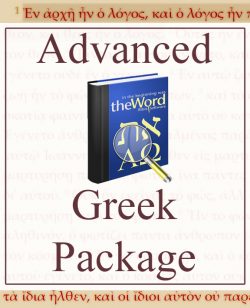
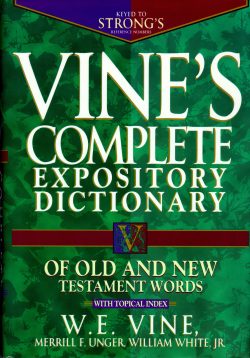
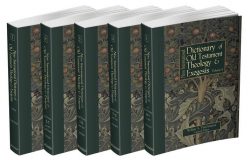
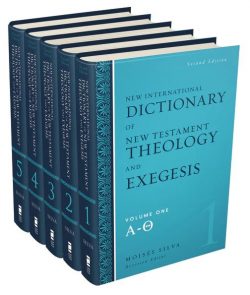
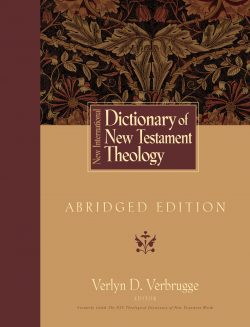
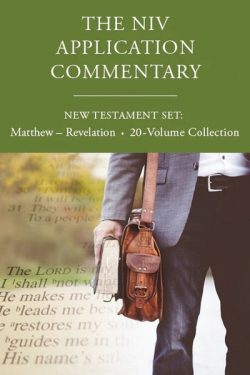
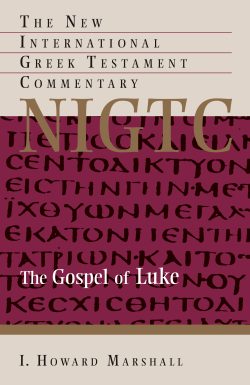
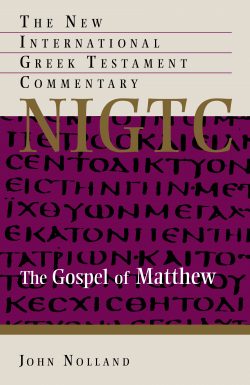
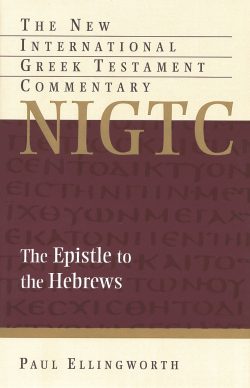
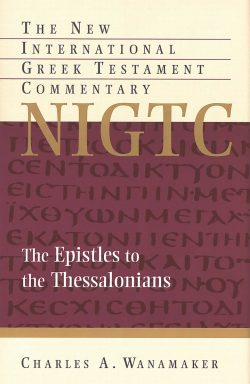
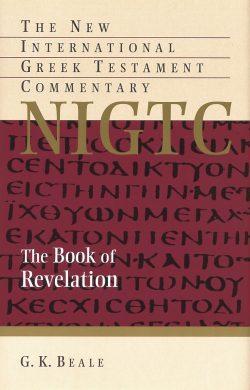
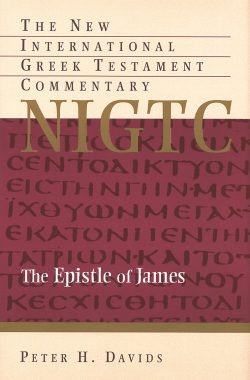
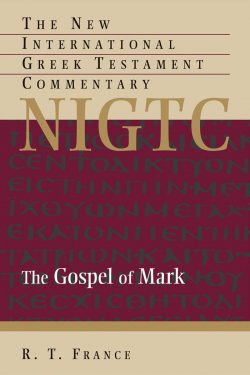
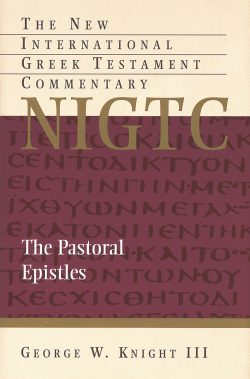
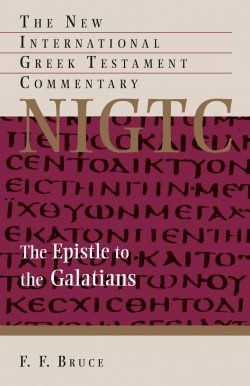
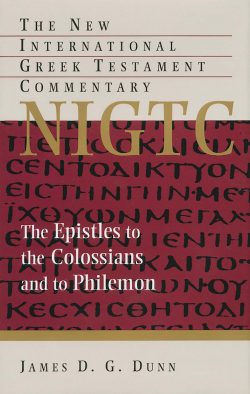
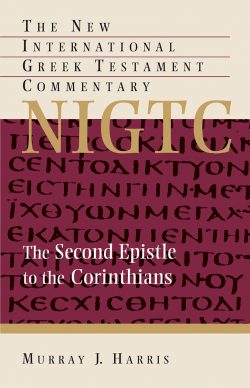
Pastor/Elder/Minister Package
$628.22$471.17 Select options